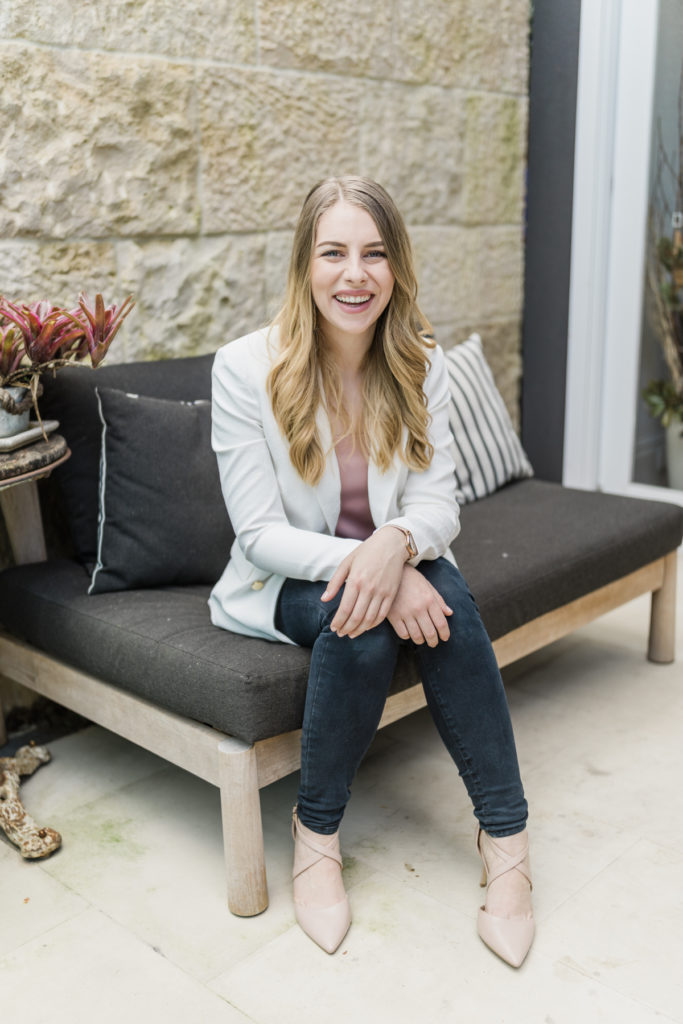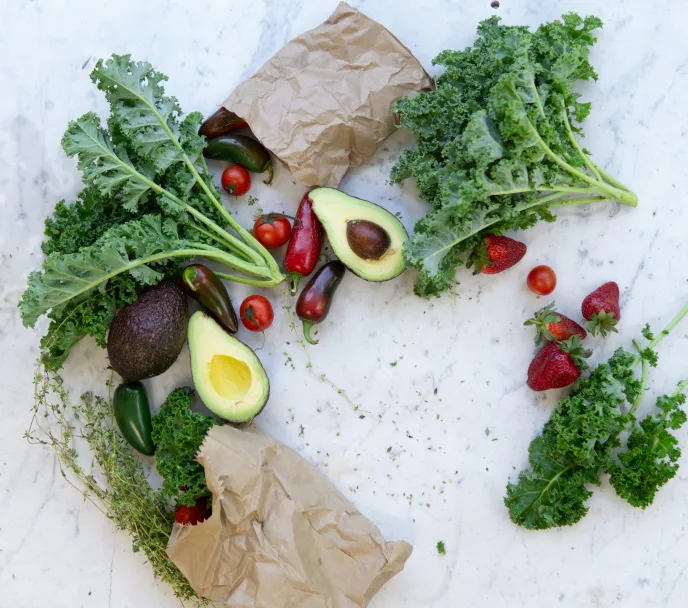I have really been delaying writing this post, because honestly, it is hard to talk about yourself, sometimes! But, recently I have been getting a message on Instagram or LinkedIn almost every day from student dietitians, new graduates, or people thinking about going into nutrition asking about my courses, professional development, and other career-related details.
And whilst, I absolutely love helping future generations of dietitians with their career goals and learning too, in fact, so much so, I actually have been involved with teaching Masters students at The University of Sydney for the past year.
Unfortunately, as a business owner and busy dietitian, I wish I could take the time to give all the lovely people who message me personalised career advice or tell my story in depth, but it is simply impossible!
So, cue a blog post to help cover the most frequently asked questions about my career as a dietitian, in general, but also how I got into my niche of fertility nutrition.
Let’s dive into some of these rapid fire questions!
What courses did you study to become a dietitian?
I studied Bachelor of Science (Advanced) in Nutrition & Metabolism at The University of Sydney, plus a Masters of Nutrition & Dietetics also at my alma mater. Going to university to study was kind of a big deal in my family, no one in my immediate family went onto tertiary education, so my family really encouraged me to make sure this was leading me to the career I really wanted.
I nearly did a double major in microbiology in my undergrad, so my passion for the microbiome and gut health has really never gone away, but it is also where my passion for early life nutrition started – but more on that later…
What attracted you to dietetics?
I was attracted to the field of medicine from primary school after losing a close family member to cancer at a young age. I had a few flirts with other career ideas like journalism and media/communications throughout high school, then I really became passionate about paediatrics when I got towards the end of high school and thought I would become a paediatrician! But then, I attended a University of Sydney Open Day and discovered dietetics, and I thought perfect! Dietetics fused my passions for science, health, and food altogether into a job I had hardly heard of, but I was sold!

I was attracted to dietetics & nutrition for multiple reasons:
- It seemed like a better lifestyle than medicine (sorry doctor friends, but I appreciate you!)
- I wanted to help people in a one-on-one kind of way.
- I loved food, science and health – I grew up in a family where food and nutrition was a key priority and considered important so I always valued that.
- A struggle with my own eating and weight in my later adolescent years which I was able to climb my way out of going through my studies, and the desire to share with people that food was more than nutrients, calories and numbers but also about culture, family, memories, celebrations, comfort.
Turns out, some of my high school friends later told me that I was writing out meal plans in my lunch break in year 10 helping them making healthier choices (I roll my eyes at myself now though!)
Do you like your job?
I love my job as a dietitian, I am so passionate about it I barely even see it as “work” or a “job” and even find myself working on new projects on my day off (yep, you could say I am a workaholic!)
What I love about it specifically is watching people progress, find clarity and reject the misinformation and confusion to find their own unique path forward towards their optimal health. I also really enjoy sharing messages to a wider audience via this blog, my social media channels and just interacting with people through these platforms brings me so much satisfaction! I work in so many different capacities as a dietitian in research, private practice, communications, food industry and consultancy capacities, there is never a dull day and certainly, no two days are the same! And, I guess now, I am also a manager too, supporting my team of volunteers and also admin assistant each day with their tasks too.

There are plenty of hard things about this work too, it can sometimes feel like everyone wants a piece of you and sometimes the expectations are extraordinarily high but it has taught me the importance of boundaries as a health care professional. It is brain-draining work, it may look like just a chat via Zoom to you, but my brain is constantly working on trying to join dots, ask the right questions and work out the best way forward for you, and that doesn’t switch off at night either!
I also find it hard to rest, as there is always more to do on my mission to help inform every man and woman on the importance of their nutrition before conceiving for their fertility and child’s future health outcomes.
What are your career highlights so far?
I feel as though I am just getting started in my career as a dietitian that I find this hard to answer! But, to date, here are a few that I am proud of:
- Being named a Rising Star inside Dietitian Connection’s Infuse Magazine back in 2018
- Being asked on the Cobram Estate Harvest Visit back in 2018 (I was seriously lusting over everyone’s Instagram stories!)

- Presenting a webinar for Megabite Nutrition on Fertility Nutrition in 2019
- Launching my own podcast, Fertility Friendly Food, which reached #6 on the Australian Nutrition charts earlier in 2020
- Launching an online fertility nutrition program, The Waiting Game, not once but twice, and pulling it off in under 3 weeks to help those during COVID-19 helping nearly 100 women across the world with their fertility nutrition!
- Attending the All About Fertility Expo in 2019 and attracting a pretty amazing turn out at my booth and talk, alongside, Sally Marchini from Marchini Nutrition.
- Becoming a Nutrition Plus licensee in 2019.
- Contributing to the IVF Australia Let’s Make it Your Year fertility lifestyle campaign in 2020 reaching nearly 250K people!
- Growing a business in less than 2 years and now having dietitians my senior ask for advice from me! (this is ridiculously humbling for me)
- Overcoming my impostor syndrome – if you’re thinking about going into business, invest in getting over this stat!
The highlights day-to-day of women emailing me and texting me their ultrasounds with their baby’s heart beat after a miscarriage or going through IVF or simply just thinking it wouldn’t happen for them, moves me to absolute tears! Or something as simple as getting back a period that has been MIA for ages.
These wins may seem small but they are absolutely HUGE for me as your health care professional, never underestimate the power of a heartfelt thank you email or sharing your wins (even if it has been ages since you’ve met with your health care provider) it truly makes our day!
When in your career did you decide to start your own business?
I probably knew I would end up in business at some point, I am very individualistic and get frustrated by systems and “this is just the way it is” mentality, I am an idea machine (you can find out if you’re a visionary or an integrator in this fun questionnaire) and love to innovate so I knew eventually I’d get frustrated working under someone else, but knew it would probably be the best way to start.
At this time, I really wanted to be a paediatric dietitian, I had done my placement at the Children’s Hospital and Masters research project there too.
So, I set off on a job hunt and despite graduating with excellent marks (and that’s what you think will land you a job), I struggled for about 4 months through over 60 applications and 13 interviews before I landed a part-time private practice job in an allied health clinic. I then was on the hunt for job number 2, I landed a private practice paediatric dietitian role as a contractor, which I have only just worked up the courage to let go of recently!
By the end of the year, I was ready to move on from the allied health clinic, and that was the time when I decided to take what was once a student dietitian blog, then a general dietitian blog into a niched private practice business! There has certainly been a lot of trial and error to get here but it is all part of the journey!
Why fertility nutrition?
As I have mentioned, my original passion was for paediatrics or children’s nutrition, so how on Earth did I wind up in pre-conception and fertility nutrition and dietetics?
I originally was so interested in paediatrics because I thought this was the ultimate form of preventative nutrition, get in really early with children and build healthy habits, we will have healthier adults and a future generation of healthier people – less chronic disease, more quality of life – woohoo!
Well, going back to my undergraduate studies in science and nearly double majoring in microbiology (I didn’t because I had to take virology and viruses were just not my jam!), I began to understand the role of a pregnant woman’s gut microbiota and also vaginal microbiota on a child’s future health outcomes, which got me more interested in pregnancy nutrition. Then, I kind of became a bit obsessed with watching lots of Youtubers at one stage and all of them had one thing in common, infertility, I hadn’t had much exposure to infertility in my personal life but the process of IVF and fertility treatments fascinated me.
I started to learn more and review my notes from university on the first 1000 days of life spanning 3-6 months before conceiving to a child’s 2nd or 3rd birthday and how what we eat as parents-to-be before and during pregnancy, whilst breastfeeding and what we feed kids during this time can change the way our genes are programmed and therefore impact their future health risks of various health conditions.
I realised, preventative nutrition started with healthier parents-to-be, and my fascination with artificial reproductive technologies only grew.
I then took the plunge and attended Nutrition Plus’ first Nutrition Therapy for Fertility & Pregnancy Workshop down in Melbourne in 2018, which by the way you can now register for online from anywhere in the world.
In my first year out, I wasn’t quite sure what I wanted, paediatrics was my passion but I didn’t know how to go about it in the private space, so I was furiously powering through professional development that year trying to explore options, I did professional development in Sports Nutrition, Feeding Therapy for children with sensory issues, clinical paediatric nutrition and soooo much more, I ended up logging nearly 80 hours of CPD that year, and honestly that is probably being conservative.
How did you become a fertility dietitian?
Unlike medical training, there is not really any formal pathways into “specialising” or niching into a specific area of nutrition and dietetics, if you have a passion, you find a way! The first step for me was the Nutrition Plus Nutrition Therapy for Fertility & Pregnancy workshop, from there I wrote blog after blog on various early life nutrition topics, read countless journal articles (and continue to this day) and seek out any additional webinars or workshops on these topics to really upskill my knowledge in this area.
And honestly, that’s how I did it, having the support of Nutrition Plus does really make a difference for continuing to consolidate my knowledge and troubleshoot tricky cases (which I love because they really challenge me!) amongst a group of dietitians that all practice in the same area.
I think the key for me was consistently writing about it, talking about it, posting about it and reading about it, immersing myself in Facebook groups and just really pushed myself to really embrace this area of nutrition and dietetics.
What advice do you have for people who want a similar career path?
Explore your options and be sure this is for you! All aspects of dietetics can be challenging, but the stories you may here in your practice of fertility dietetics may be particularly heartbreaking for you to hear, and you need to protect yourself and your energy, first and foremost.
Make sure you have a good grasp of the fundamentals of dietetics like behaviour change, nutritional counselling, and a good understanding of general nutrition issues, as these will still come up in your practice too – Coeliac disease, insulin resistance, weight management and so so much more will pop up every single day!
Upgrade your knowledge first, but then don’t hold yourself back from saying you can help, 1 in 6 couples struggle to conceive in Australia, there are certainly no shortage of people you can help with your knowledge and skills so get out there!
Immerse yourself where the people you want to help hang out, Facebook groups, YouTube videos, Instagram – whatever! Get to know the language and the struggles so you can work on how to best serve them.
Volunteer and get some experience from a practitioner you look up to, this is why I run my 6-month volunteering experience for 2 student dietitians, for some, it solidifies this is the way they want to go and others get a shock to the system on how much work is involved and go another direction – which is A-okay too! The path I took is not exactly conventional and so you may not get a good insight into this whilst at university and when studying.
If you’re reading this and you’re thinking about it, and you’re unsure, sit down and write about your goals, your desires and think about how you might get there, and if you need some help one-on-one – get it and invest in it!
Wish you had another dietitian to bounce ideas off? Share cases with for an opinion on areas such as fertility, women’s health concerns like PCOS, endometriosis and IBS? Just want some help with general career directions? Then you can book in for a Dietitian Supervision session right here.
Want to read more about landing a job as a new graduate dietitian? Check out my tips.



